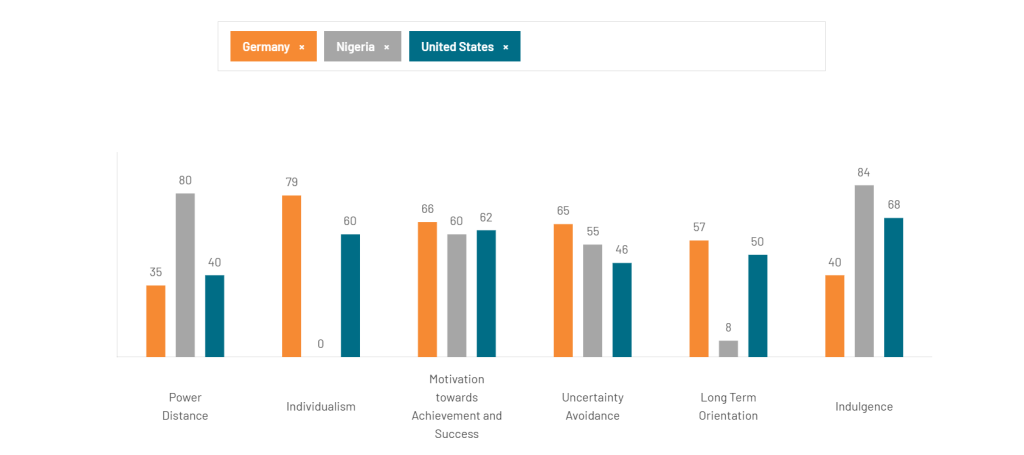Building a Global Career from Nigeria: Skills, Networks, and Pathways
Building a global career from Nigeria is a practical goal, but it requires preparation. The successes of Nigerians at institutions like NASA, the WTO, and multinational corporations prove that the pathway is already established. The challenge for today’s professionals is not whether the door is open, but whether they are ready to step through it.

Photo by Tima Miroshnichenko
The modern workforce no longer operates within fixed borders. Technology, remote work, and international mobility have opened new paths for professionals to compete globally. For Nigerians, this shift is particularly important. The country has one of the world’s fastest-growing youth populations, but local job creation has not kept pace with the demand for opportunities. Building a career that reaches beyond Nigeria’s boundaries is no longer an aspiration for a few—it is a necessity for many.
A global career is not simply about leaving the country. It is about acquiring skills that travel, building visibility, cultivating networks, and developing the ability to thrive in diverse cultural environments. Nigerians who succeed abroad or in cross-border careers demonstrate that the pathway is clear for those who prepare deliberately.
The first requirement is mastery of skills that hold value in multiple countries. Professional certifications like the CFA in finance, PMP in project management, and AWS in cloud computing are recognised worldwide. According to the Project Management Institute, PMP-certified professionals earn an average of 16% more globally than their peers.
Technical expertise, however, is only part of the equation. Employers also value soft skills such as problem-solving, collaboration, and adaptability. A McKinsey report notes that these human skills will remain critical as automation reshapes industries. Nigerians who combine global technical certifications with strong interpersonal capabilities position themselves as assets across industries.
Competence is wasted if it cannot be seen. Platforms such as LinkedIn, GitHub, and ResearchGate function as global marketplaces for talent. LinkedIn has identified Africa as one of its fastest-growing regions, and Nigerian professionals are among its most active users.
Visibility requires more than a polished CV. It means publishing insights, contributing to professional discussions, and showcasing projects that demonstrate expertise. Iyinoluwa Aboyeji, co-founder of Andela and Flutterwave, used digital platforms to articulate ideas that reached investors and collaborators well beyond Africa. His example shows how thought leadership, not just technical skill, creates global attention.
Remote work has become one of the most practical ways for Nigerians to begin global careers. The Oxford Internet Institute ranks Nigeria among the top ten countries supplying online labour, with strong representation in software development, design, and digital marketing.
Platforms such as Upwork, Fiverr, and Toptal enable Nigerians to work with clients across continents without relocation. These experiences provide income, international references, and exposure to diverse work cultures. Andela started by placing Nigerian software engineers in remote teams for global clients, and many of those professionals have since built careers at multinational firms. Remote work remains a practical entry point into global networks.
A career cannot scale globally without strong connections. Professional mobility is often shaped by relationships as much as by technical skill. Alumni networks, fellowships, and industry conferences provide structured opportunities to build cross-border ties.
The Chevening and Erasmus Mundus scholarships have enabled many Nigerians to study abroad and join international professional communities. Similarly, the Mandela Washington Fellowship has produced alumni who now occupy roles in global corporations and policy organisations. Networks create access that qualifications alone may not secure, and they open doors to opportunities that are rarely advertised.
Global careers require the ability to adapt to cultural differences in communication, hierarchy, and work style. Hofstede’s cultural research shows that Nigerian workplaces, which often value flexible communication and relationships, differ significantly from the low-context, direct styles found in countries such as Germany or the United States.

Dr Wendy Okolo, an aerospace engineer at NASA, exemplifies this skill. She combines technical excellence with the ability to operate effectively in highly structured U.S. institutions. Her success illustrates that cultural competence is not about abandoning Nigerian identity but about translating it into an advantage in international settings.
Global professionals are not just employees; they are brands. A personal brand communicates values, expertise, and credibility. It is built through consistent communication—whether in published articles, speaking engagements, or visible contributions to professional communities.
Ngozi Okonjo-Iweala’s rise to Director-General of the World Trade Organisation demonstrates the power of branding. Her reputation as a reform-focused economist, built through decades of work at the World Bank and Nigeria’s finance ministry, helped position her as a trusted leader in global governance. Nigerian professionals aiming for global relevance must think carefully about how they present their expertise and values to the world.
A global career is not achieved once and for all. Industries evolve, and skills that are valuable today may become obsolete tomorrow. The World Economic Forum projects that 44% of workers’ core skills will change by 2027.
For Nigerians, this means continuous investment in learning through online platforms, executive programmes, or reskilling in emerging areas like artificial intelligence, sustainability, and ESG reporting. India’s IT workforce illustrates the impact of sustained learning: deliberate investment in software skills positioned the country as a global talent hub. Nigeria, with its demographic strength, has the potential to follow a similar trajectory.



